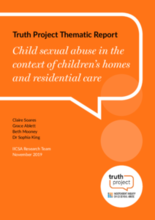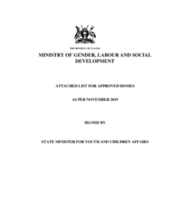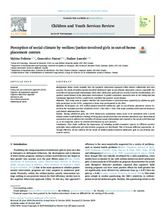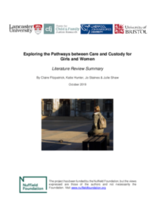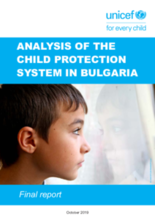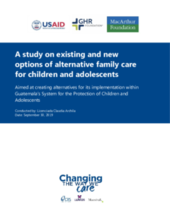Displaying 391 - 400 of 1510
This is the second research publication in a series of thematic reports examining what victims and survivors have shared with the Truth Project about their experiences of child sexual abuse and the institutional context in which it occurred. It details the research findings in relation to experiences of child sexual abuse that occurred in the context of children’s homes and residential care in England and Wales.
This document contains a list of alternative care homes in Uganda that have been approved by the Ministry for Gender, Labour and Social Development.
This study aims to explore whether the social climate is perceived more positively by adolescent girls who participate in the Caring and Just Community Approach (CJCA), compared to those who participated in the cognitive behavioral approach (CBA).
This study tested the hypothesis that group home size moderates peer influence-conduct problem relationships such that large homes with many residents are relatively risky places, while smaller homes with fewer residents are relatively protected places.
This article provides an overview of literature investigating the needs of Indigenous children in residential care facilities in Australia.
This study had three goals: (1) To analyze the prevalence of dating violence in adolescents under residential care settings according to sex and age; (2) to explore the relationships between victimization and perpetration in adolescents’ dating violence, sexist attitudes and clinical variables; and (3) to identify variables associated to adolescents’ dating violence (victimization and perpetration).
Child protection-involved children experience disproportionately high criminal justice system contact, yet little is known about the circumstances in which such children offend. This study sought to identify the contexts in which this group of children offend and factors associated with children being charged in each context.
This targeted literature review seeks to explore how to disrupt the routes between care and custody for girls and women, examining the over-representation of care experienced individuals in criminal justice settings.
This research is based on a stock-taking of the current situation. It is based on a comprehensive literature review and a genuine primary research with service users as well as policy makers, service providers, children and families.
This report from Changing the Way We Care reviews the range of available alternative care options in Guatemala and offers recommendations for additional alternative care modalities as well as deinstitutionalization and family preservation practices.

